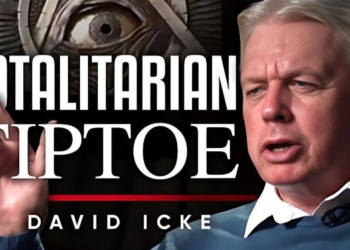 Excerpt (Ch. 23) from Touching the Jaguar: Transforming Fear into Action to Change Your Life and the World by John Perkins
Excerpt (Ch. 23) from Touching the Jaguar: Transforming Fear into Action to Change Your Life and the World by John Perkins
The Payoff
The next morning our group gathered for breakfast. There was talk about the destruction that the industrialized world was causing, that—like the Evias—we and our corporations were trampling the earth, cutting forests, polluting rivers, and gluttonously devouring everything in sight. Someone pointed out that if we continued on this path, at some point wars, disease epidemics, or some other acts of man or nature would have to weed out our populations. This Indigenous legend was seen as a message about the growing global crises.
Several people wanted to know what I’d meant when I’d mentioned that some of the Achuar and Shuar believe that we in the modern world and our oil companies are a current manifestation of the Evias.
“Missionaries don’t value the Indigenous people’s stories,” I answered. “Etsaa is sacrilege to them. A few of the older Shuar men have told me of a time when they and the women practiced forms of birth control similar to Tantric practices and that the women also used certain plants to prevent pregnancy or cause abortions. Then the missionaries arrived. The Church forbids all birth control—except abstinence. And that is something the Achuar and Shuar are not about to practice. Also, both the missionaries and the government condemn warfare. We think of that as good, but it’s also had a negative impact. Populations have mushroomed. The animals—the main source of protein in a jungle environment—are disappearing. Indigenous men and women throughout the Amazon are having to prostitute themselves to oil and construction companies just to feed their families. Some say that Etsaa is angry because they haven’t kept their commitment. So, the Evias have returned.”
“Compared to the Achuar, we’re giants,” someone observed. “White ones.”
“Oil derricks, bulldozers, and other gigantic machines cannibalize the land,” another added.
It was one more perception-changing moment for our group. Most of them had been educated to think of our culture as respected in places like the Amazon. Now, as we finished breakfast, there was a great deal of conversation around the idea that we were seen as giant white cannibals who came to exploit the Achuar and their neighbors.
After breakfast, we took the canoe ride to the home of Taish, the shaman Daniel, Ehud, Juan Gabriel, and I had visited before, where we’d taken ayahuasca and I’d gone on that shamanic journey through history. Daniel had assured me that there had been a peace treaty between Taish and the community that had attacked him. There was nothing to fear.
Taish welcomed Daniel, Juan Gabriel, and me with open arms and, through a young interpreter, greeted everyone. Although several of our people later remarked that he had the look of a fierce warrior, to me his appearance and attitude were gentler than a year earlier.
Shortly after we’d set up our mosquito-net tents beneath the palm-frond roof of his large home, the sun set. We gathered around Taish, sitting on wooden stools in a circle. He welcomed us once again and offered ayahuasca. This was a time when ayahuasca was still virtually unknown outside the Amazon. Only Lynne, Bill, and one other member decided to drink it, although several of those who declined asked for and received healings from Taish. Even for those who did not partake, it was a powerful night.
The shaman’s melodious chanting, the sounds of the jungle, the scent of wood smoke mixed with night-blooming flowers, and what Daniel referred to as “the spirit of the plant” opened us all to the magic of this place. The tension and anxiety that had built inside me ever since Lynne and I had first started planning this trip melted into the night. For the first time, I felt a sense of relief.
The next morning, Daniel, Juan Gabriel, and I met with Taish and three Achuar warriors in the shaman’s lodge. On that previous trip, Daniel had brought a gift of supplies to Taish; we had paid no money for the visit or the ayahuasca. This time, Daniel explained, we wanted to pay him in currency and also wanted to set a precedent for future visits of people who would be coming once the Kapawi Lodge was finished. He asked how much each of the three people who had drunk ayahuasca owed.
Taish conferred with his companions. “A thousand dollars,” he said at last.
I was stunned. I looked from Daniel to Juan Gabriel. “I can’t possibly ask our people to pay such an exorbitant price.”
“We should have negotiated the price before the ceremony,” Juan Gabriel said. It reminded me once again of the cultural biases even people who are sensitive to such things hold.
The three of us had a long conversation with Taish. He turned to the warriors. They gave us looks that made my blood run cold. One picked up his spear and jabbed it into the earthen floor of the lodge. Taish glared at us. “A thousand dollars,” he repeated.
I recalled Daniel’s comment months before: “You’re going to have to agree to their request. They own the canoes.” I also recalled the “kidnapping” in that other community. It seemed our whole group was now held hostage. What choice did we have but to capitulate? This surely would kill any chances for partnership.
We gathered the group. We sat in a circle on wooden stools. When we explained, their faces reflected the shock, anger, and fear that I felt.
“Must be a mistake,” someone finally muttered.
Daniel jumped to his feet. “That’s it!” He motioned to Juan Gabriel and me. “Come. Let’s meet again with the shaman.”
Without another word, Daniel turned and led us quickly to Taish, who had remained seated in his lodge. Unlike earlier, a long spear rested on his lap. More men were gathered around him.
The three of us sat down on a bench that faced the shaman.
Daniel asked me for ten dollars.
My hand shook as I took a ten dollar bill from my pocket and gave it to him.
He reached into his backpack, pulled a wad of bills out, counted them, and then handed the stack, along with my bill, to Taish. “Which do you want?” he asked.
Taish counted the bills in the stack and broke into a big grin. He waved them in the air. “This is it,” he said. “This much from each of the three people who took the ayahuasca.”
Daniel turned to Juan Gabriel and me. “He’s thinking of sucres,” he said, referring to the Ecuadorian currency. He grinned. “He’s not asking for $1,000. He’s asking for sucres that are worth less than five dollars.”
The three of us began to laugh.
Taish looked puzzled, aggravated. He asked what we found so funny.
Daniel explained.
Taish slapped his knee. He and his men broke into fits of laughter. We all spent the next moments doubled over with the laughter that comes from the release of tension.
“Those sucres are not enough,” Daniel said after we had collected ourselves. “You have shared with us your home, as well as your ayahuasca. We want to pay you more. We want to set a good precedent.”
Taish thought about this and then quietly conferred in Achuar with the other men. “We trust you,” he said at last. “Pay what is fair.”
I wanted to hug him; instead I just said the Achuar words for thank you: “Makate.”
We went back to our people. They were busily folding and packing the mosquito-net tents and their backpacks. It was obvious that they were struggling to take their minds off the negotiations. As soon as they saw us, they stopped and gathered around.
“It was all about perception,” I said. “And cultural misunderstandings.”
Daniel explained.
Tension-releasing laughter filled Taish’s home.
In the end, we settled on a price that was equivalent to the amount a massage therapist would have charged in the US. It was a lot by Achuar standards and yet we all agreed that we needed to pay at least that much; we wanted to encourage them to view us as generous and also to understand that, despite what they’d heard from the missionaries, many in our community placed great value on the work of the shamans.
Departing from Taish’s home, one by one our people expressed their gratitude for the magic they had experienced and for his hospitality. He, the warriors around him, and the entire family were beaming. We would all have stories to tell our grandchildren.
A potentially disastrous situation had shapeshifted into a bonding experience. And a foreign group of men, women, and a pre-teenage girl had spent a night in an Achuar shaman’s home, an historical first.
“Mind-sets,” Lynne reminded me as we walked into the forest. “In this case, perceptions about money. With Roberto Poz, it was his perception about our intent and his belief that Americans were untrustworthy. When he saw the sacred items from Ecuador, his perception of us and our motivations changed. Something along similar lines happened here.”
An additional lesson, it seemed to me, was to avoid assumptions about the values and mind-sets of other people and cultures.
Reprinted from Touching the Jaguar with the permission of Berrett-Koehler Publishers. Copyright © 2020 by John Perkins.

Touching the Jaguar: Transforming Fear into Action to Change Your Life and the World (Berrett-Koehler Publishers; June 16, 2020; https://johnperkins.org/



![Touching the Jaguar: Transforming Fear into Action to Change Your Life and the World by John Perkins [EXCERPT]](https://consciouslifenews.com/wp-content/uploads/2020/07/Touching-the-Jaguar-featured-680x375.jpg)

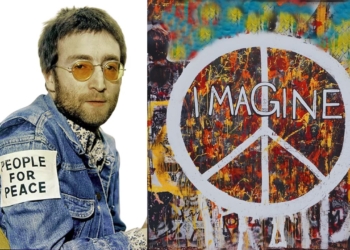
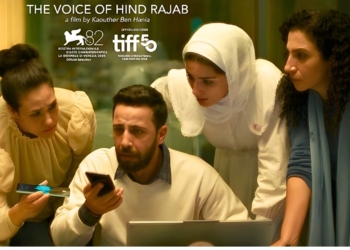
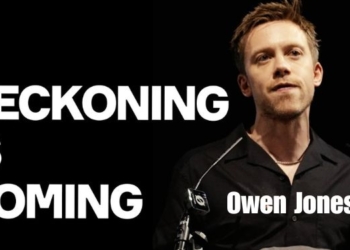
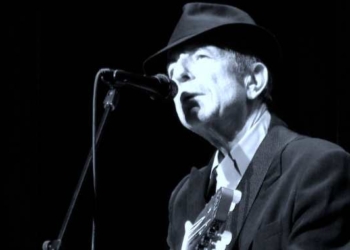
![Who Is Bobby Kennedy? [30-Minute Film on RFK Jr.’s Life, Narrated by Woody Harrelson]](https://consciouslifenews.com/wp-content/uploads/2024/05/who-is-bobby-kennedy-350x250.jpg)
